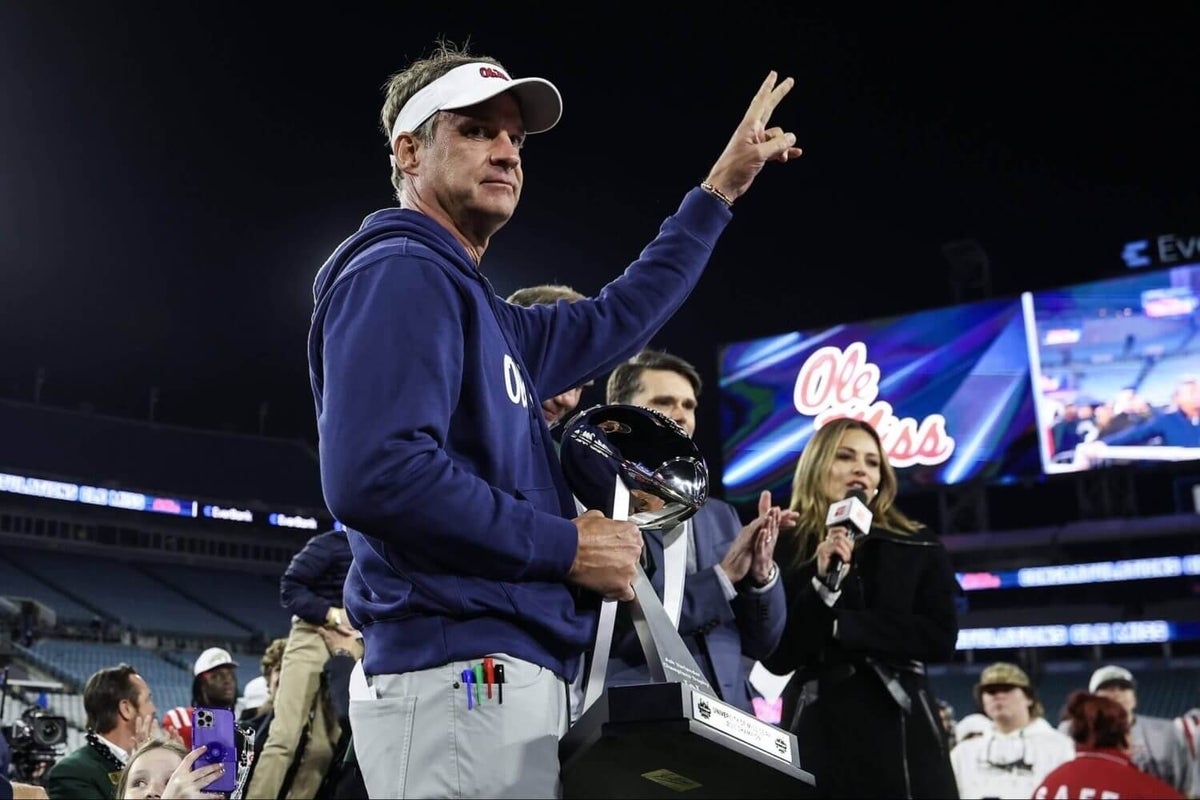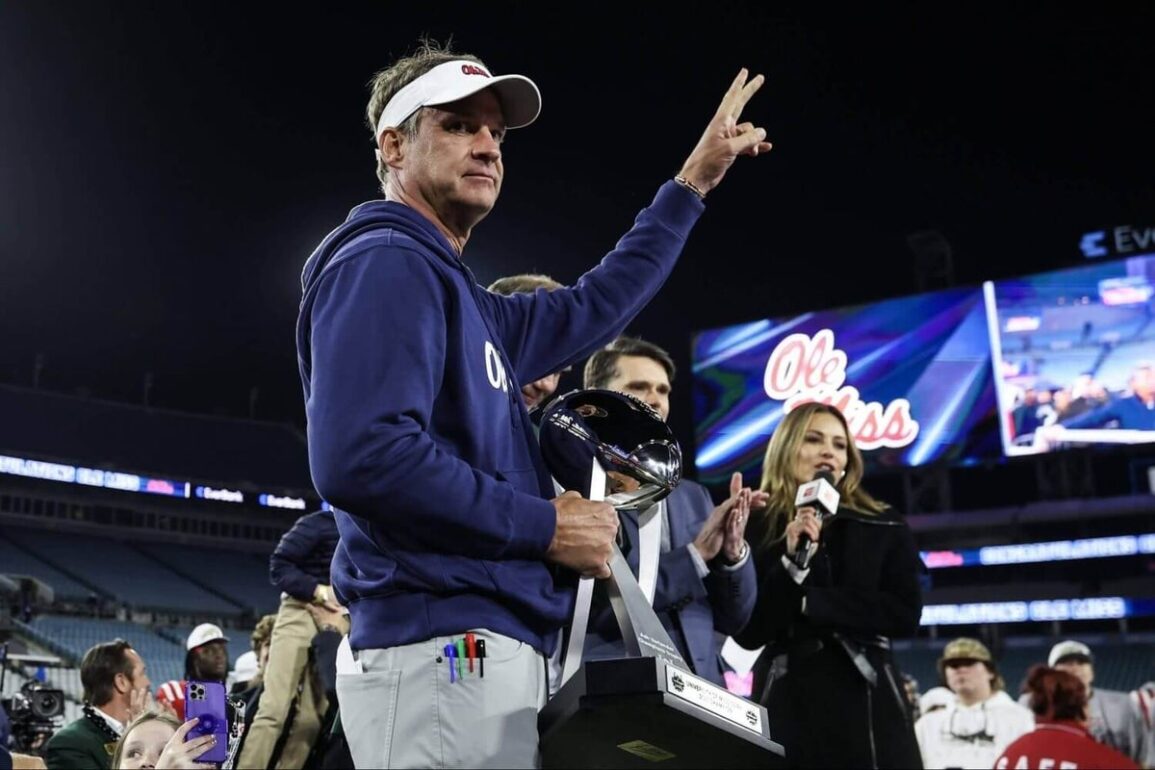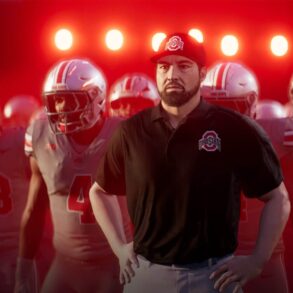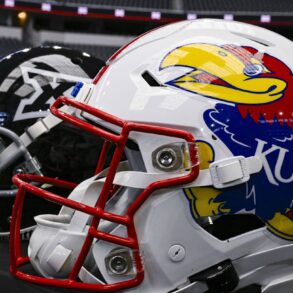
DESTIN, Fla. — Lane Kiffin, voice of reason.
That’s where college football is in its latest long and winding journey to a new postseason format.
Looming College Football Playoff expansion has been the hottest topic at the SEC meetings this week as the conference considers the best way to ensure the rest of college football properly respects its authority.
Advertisement
Expansion of the CFP field from 12 to 16 teams for 2026 and beyond appears inevitable at this point, but it’s the how, not the how many, that is taking a while to come together. The topic is getting everybody involved a little testy, including SEC commissioner Greg Sankey.
Sankey and the rest of the conference commissioners that make up the CFP management committee are debating multiple models with various numbers of automatic bids and qualifiers, identified by combination lock codes such as 5-11 and 4-4-2-2-1-3.
Several SEC coaches this week gave their opinions on what they would like to see in a playoff format, and most responded with some form of “above my pay grade” while also noting that it is very, very difficult to play in the SEC. Thanks, Coach!
Leave it to Kiffin, the Ole Miss coach and social media antagonizer, to be more direct.
“The best system should be 16 (teams) and should be the 16 best,” Kiffin said.
He added that a metrics-driven selection process with no automatic qualifiers is probably the way to go, with a committee made up of members who have no obvious conflicts of interest
“Probably media people that watch the most, that are on it and don’t have any other motives in it, and figure out the best 16 teams,” Kiffin said.
Kiffin spoke with reporters after SEC coaches had several hours of meetings with Sankey and athletic directors, where they discussed formats and models.
“They talked about — I’ll call it a 5-11 model — and our own ability to earn those berths,” Sankey said Tuesday afternoon in his daily wrap-up session with reporters. “The question is, why wouldn’t that be fine? Why wouldn’t we do that? We talked about 16 with them. So, good conversation, not a destination, but the first time I’ve had the ability to go really in-depth with ideas with them.”
Advertisement
Some of the other coaches had chances to chime in on the great Playoff debate before those meetings, but the conferences at the Hilton Sandestin were certainly not the first time the topic came up for discussion.
“I think I have a good understanding of where it is and the decisions that have to be made, which I don’t think those decisions get answered here,” said Georgia coach Kirby Smart, whose Bulldogs won two national titles in the four-team CFP before they lost in the quarterfinals of the first 12-teamer last season.
Smart also echoed Sankey’s remarks from the day before, when he talked about balancing what’s best for the conference with being one of the guardians of the game.
“I’m not looking at it in a self-preservation mode, which happens a lot in college football. These meetings are that way. Conferences are that way,” said Smart, who threw in a not-so-vague reference to his former boss, Nick Saban. “I’ve learned from the best in the business that you’re trying to constantly sustain the game and make the game better, and not just do it for what’s best for me or just for self-preservation.”
Of course, Smart then noted that the SEC set a record for teams in the NCAA men’s basketball tournament (14), placed a record 13 teams in the baseball Regionals and will have five of the eight teams competing in the Women’s College World Series in Oklahoma City this weekend.
“But when you look at what they’re able to do, there’s no outcry, and there’s nobody beating a drum saying that it’s completely unfair. They do a lot of things based on RPI. They do a lot of things based on strength of schedule, and they reward teams for that,” Smart said. “I have a hard time seeing Ole Miss, Alabama, South Carolina not being in the best teams last year.”
And there it is.
Last year’s CFP selections are currently facing re-litigation, both among fans online and as the backdrop for the actual discussions among decision-makers.
Advertisement
The SEC received three bids, while the Big Ten had four. The ACC snatched an extra bid with Clemson’s conference title game victory, essentially bumping Alabama from the 12-team CFP, even though the Crimson Tide were 11th in the committee’s final rankings.
“You kind of wonder what would happen if other people would have had the chance to play our schedule last year,” said Alabama coach Kalen DeBoer, whose first Crimson Tide team beat Georgia but lost to Vanderbilt (7-6) and Oklahoma (6-7) en route to a 9-4 finish.
Kiffin’s Rebels, who also beat Smart’s SEC champion Bulldogs, finished 14th in the CFP rankings, and South Carolina, which beat ACC champ Clemson, was one spot ahead of the Tigers at 15.
There is no denying that the current composition of the SEC, with the addition of Texas and Oklahoma, has created a degree of difficulty that is tough for other conferences to match.
Undercutting the SEC’s complaints about last year’s CFP selections — and nobody complained louder (can social media posts be loud?) than Kiffin — was the fact that Ole Miss cost itself a Playoff spot by losing at home to a Kentucky team that didn’t win another SEC game, and went on to finish a 4-8 season with a brutal loss to ACC rival Louisville.
If Kiffin’s model — let’s call it 16-0 — had been in place last year, the CFP would have included six SEC teams.
Problem solved, right?
Not so fast. The SEC’s athletic directors seem enamored with the idea of multiple automatic bids, predetermined for each Power 4 conference (four each for the SEC and Big Ten). That idea first came from Big Ten commissioner Tony Petitti last year. The automatic bids would help reimagine championship weekend by adding some high-stakes intraconference play-in games (i.e., new television inventory), essentially turning the selection committee into a seeding committee.
Advertisement
“We’re so used to selection committees in college athletics, because we have these sports that play a lot of games. And you can make it work with the committee,” Florida AD Scott Stricklin said. “The committee is never ideal, right?
“It really makes it hard to do it in a way without a committee, and a committee just does not seem like a very good way to do college football. So I think anything we can do to make the postseason more objective and less subjective is going to be better. Whether you could do that some other way than automatics? I don’t know, but I think that’s the goal. How do you make the selection of who gets in more objective and less subjective?”
The new Playoff format will directly impact the SEC’s decision on whether to add an extra conference game to its schedules, going from eight to nine. Without some type of assurance that adding an extra conference game won’t impede teams from being in the CFP, the SEC might just stick with eight games.
“I think nine games make sense for a lot of different reasons, but it doesn’t make sense for us if we’re not guaranteed to be protected,” Texas A&M athletic director Trev Alberts said.
That sounds a lot like automatic bids without calling for automatic bids.
The ADs hold more sway than the coaches in these discussions, but Sankey will ultimately make an advised call on what format to support for when he gets back together with his fellow commissioners.
The Big Ten has staked out its position on automatic bids, and pretty much everybody thinks it’s a bad idea. But the CFP is no longer a democracy. The new contract that kicks in next year gives the Big Ten and SEC the power to push through what they want over the objections of their colleagues.
There is still hope among some CFP leaders that Sankey, who has seen how an unpopular postseason system can bring scorn and scrutiny upon college football, might provide resistance to AQs.
How realistic that is at this point is questionable at best. CFP uncertainty will linger into June. The next management committee meeting is slated for June 17 in Asheville, N.C.
Unfortunately, Kiffin is not invited.
(Photo: James Gilbert / Getty Images)
This post was originally published on this site be sure to check out more of their content.






